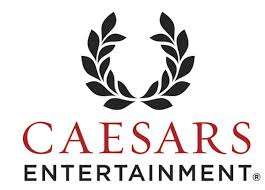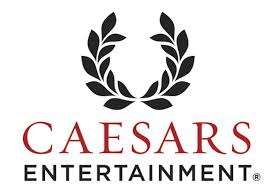More Complications Face Caesars in CEOC Bankruptcy Proceedings
The fiercely contested Chapter 11 bankruptcy of Caesars Entertainment’s primary operating unit, Caesars Entertainment Operating Company, Inc. (CEOC), has returned to financial headlines in recent days. From the ongoing legal battle over Caesars assets launched by some of the company’s creditors to the tentative expulsion of three CEOC-operated Atlantic City properties from the major casino workers’ pension fund, it’s been an interesting month to date.
 The latest developments in the CEOC bankruptcy proceedings may be of the most interest to the gambling community. Could there be an unraveling of the various internal Caesars property transfers that loaded most of the company’s debt into the bankrupt CEOC operating unit? If the aggrieved “second lien” creditors ultimately prevail, such an unraveling could, potentially, bring anything and everything Caesars-related back into play. That includes not only each and everyone of Caesars’ casinos, spread over 14 states and five countries, but such entities as Caesars Interactive, the face of the company’s recent online ventures, and profitable brands such as the World Series of Poker.
The latest developments in the CEOC bankruptcy proceedings may be of the most interest to the gambling community. Could there be an unraveling of the various internal Caesars property transfers that loaded most of the company’s debt into the bankrupt CEOC operating unit? If the aggrieved “second lien” creditors ultimately prevail, such an unraveling could, potentially, bring anything and everything Caesars-related back into play. That includes not only each and everyone of Caesars’ casinos, spread over 14 states and five countries, but such entities as Caesars Interactive, the face of the company’s recent online ventures, and profitable brands such as the World Series of Poker.
Caesars won a small legal victory of sorts in the initial bankruptcy proceedings last month, when a Delaware judge agreed to move the bankruptcy to Illinois, following an involuntary bankruptcy suit brought against Caesars by some of the aggrieved creditors. Caesars’ own bankruptcy interests are somewhat better served in Illinois. However, moving the case to a Chicago bankruptcy court doesn’t mean the creditors’ claims of illegal asset transferring won’t be heard.
Just last week, US Bankruptcy Judge Benjamin Goldgar, who’s overseeing the Chicago proceedings, appointed an independent examiner to look into several asset-transfer transactions of Caesars in recent years that the dissident creditors are at the heart of the alleged scheme to discharge debt via the CEOC bankruptcy.
Judge Goldgar has appointed the examiner to look into “any apparent self-dealing or conflicts of interest involving the debtors or their affiliates.” The aggrieved creditors allege that the two private-equity investment firms who acquired the former Harrah’s last decade, Apollo Global Management and TPG Capital Management, have in effect looted Caesars of most remaining profitable assets, while also retaining control of other entities separate from CEOC which would thus have reduced debt.
A recent Reuters report on the examiner’s appointment cites three specific series of transactions as being of interest: The transfers away from CEOC in 2011 of various interests in online gaming, including the now separate Caesars Interactive; a 2013 transfer out of CEOC and into the separate Caesars Growth Partners of Las Vegas’s mid-Strip Octavius Tower and Linq projects; and the 2014 move of four other Las Vegas properties into a different entity, Caesars Growth Partners — The Cromwell, The Quad, Bally’s Las Vegas and Harrah’s New Orleans. Transactions involving the Caesars-owned Planet Hollywood and Horseshoe Baltimore may also come under the examiner’s review.
As all the courtroom drama continues, the various Caesars properties continue on with business as usual. The bankruptcy case already includes an order allowing the casinos to continue spending available liquid assets on short-term needs, even as some of the creditors continue with attempts — all rebuffed by Caesars — to retrieve their investments.
Late in February, Caesars turned down not one, but two separate requests from bondholders for immediate payment of notes. First, Wilmington Savings Fund Society, a second-lien noteholder, was turned down in its request for an immediate repayment of $3.68 billion in principal and $185 million in interest. The company may be the largest second-lien noteholder in terms of money invested in Caesars, and is a party in some of the ongoing legal actions against Caesars and CEOC.
Days later, another of the unsecured, second-tier debtholders, BOKF N.A., asked for a refund of its $750 million investment. Like Wilmington Savings, BOKF was refused by Caesars. Both payment requests will inevitably be addressed by the court in the ongoing bankruptcy proceedings.
Then there’s the matter of the employees in three Caesars-owned New Jersey casinos. About a week ago, according to a Press of Atlantic City report, the National Retirement Fund expelled Bally’s, Harrah’s and Caesars Atlantic City from its multi-employer pension plan, while demanding $462 million in alleged withdrawal liability.
Two things about this episode carry added interest. Normally, withdrawal liability is invoked only when a company fails or defaults on its payment obligations, but CEOC continues in operation (even if bankrupt), and the company was current in its pension-fund payments at the time the case was filed in January. Though the expulsion became public news only recently, it appears the pension fund’s controllers assessed the complicated situation including the planned CEO bankruptcy filing and the reformation of all of Caesars Entertainment as a possible problem for future pension payments from CEOC.
Therefore, in a preemptive move, the National Retirement Fund undertook the three casinos’ expulsion before CEOC announced its own filing, during the mandatory waiting period before CEOC could file Chapter 11.
Pension fund chairman Jim Brubaker accused Caesars of potentially removing the fund’s ability to retrieve missed payments as a result of the fund’s filing, by moving most available Caesars assets away from the burdened CEOC unit, which still operates the three Atlantic City casinos.
“We did not start this. Caesars started this, and had Caesars not done what they were going to do, and did do, we would never have taken those actions,” Brubaker stated. “The ongoing bankruptcy is going to divide the company and the ownership group. … When that happens, we no longer have the ability to pursue the other parts of Caesars — the so-called good Caesars — for the obligations of the bad Caesars. So we had to act before the bankruptcy.”
Caesars did not respond publicly to the fund’s actions, nor to Brubaker’s statements. However, one of the union presidents of the various Caesars employee unions in New Jersey, Bob McDevitt, noted that Caesars was still current in payments at the time of the filing. McDevitt termed the fund’s action “a dumb move by some trustees on the fund who really weren’t thinking things through.”
Most of the legal challenges to CEOC’s bankruptcy filing will now await the independent examiner’s report. Will CEOC’s bankruptcy and the greater makeover of all of Caesars be allowed to proceed, or will Judge Goldbar rule in the creditors’ favor, and begin an unraveling of Caesars’ complicated corporate trail? More accusations and lawsuits are likely ahead, with the future of one of America’s largest casino conglomerates at stake.




















COMMENTS